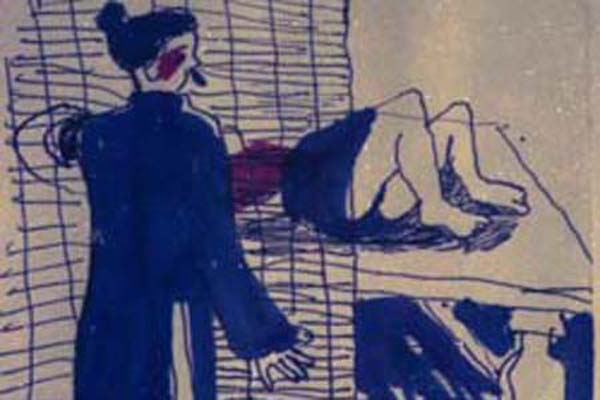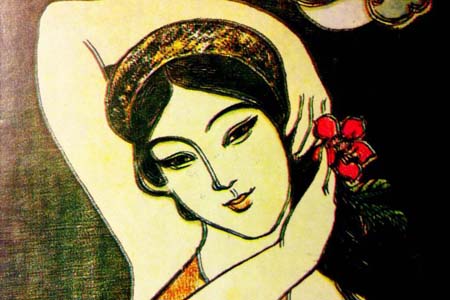Ho Xuan Huong was successively the second ranked wife of the Prefect of Vinh Tuong, and then of the head of Coc Canton. Even as a concubine, she seems to have been happy with the former, whom she loved deeply.
The Prefect of Vinh Tuong was a scholar who gave himself to poetry. According to legend, he made acquaintance with Ho Xuan Huong at the small tea house she kept, where customers practiced poetic poetry contests. Perhaps was he attached to this woman more for her intellect than for her beauty? The truth of her love shines through her elegy dedicated to him:
Alas! Your have lived your life. Prefect Vinh Tuong
You have paid your debt to our mutual love
Your literary talents are three feet underground
Bow and arrows have been scattered to the four corners of the skies
Where then is God’s balance beam lost?
The universal womb has closed forever!
Twenty seven months mourning is but a short time
Alas! You have lived your life. Prefect Vinh Tuong.
Twenty seven months of deep mourning had elapsed but her heart could not forget.
The poet, so often mocking and even cruel, seems to reveal great tenderness here. But it is possible to harbor some doubts on the subject.
If the first marriage was apparently happy, she was not lucky with her second one with the Canton Chief, to which the poem on the latter’s death bears witness.
The tone denotes a sort of detachment, with sometimes a touch of spicy irony.
Alas! My poor husband, my poor husband, alas!
Our union has lasted but a short time
Now the tadpole has lost it tail.

As a widow, Ho Xuan Huong was courted by numerous scholars. Chieu Ho whose name was associated with hers – what did he mean to her? Literary or more intimate relation?
Born under the name Pham Dinh Ho (1768-1830) in a family of scholar and mandarins, he was renowned from his young days for his love of literature and his great learning.
When he was a young student, it seems that he exchanged rhymes with the poet, in which he ‘crossed swords” with the always mischievous young woman that liked showing off her talents.
At that time, students could be compared, while being mindful of the differences, to those of Rabelais’s time.
The first to be feared is the devil.
The second, the ghost,
And the third, the student.
Everybody knows this exchange of thrusts between Chieu Ho and Ho Xuan Huong.

